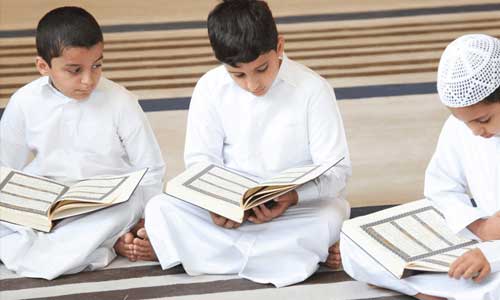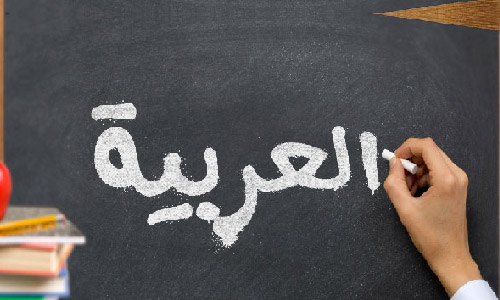Dua Qunoot holds a special place in Islamic prayer, serving as a beautiful supplication that connects Muslims with their Creator during moments of worship. This powerful prayer, also known as Dua e Qunoot, represents one of the most cherished supplications in Islam, offering believers an opportunity to seek Allah’s guidance, protection, and blessings.
Many Muslims encounter Dua Qunoot during their Fajr prayers or Witr prayers, yet not everyone fully understands its profound meaning and proper implementation. The practice of reciting this dua varies among different Islamic schools of thought, with some considering it a regular part of daily prayers while others reserve it for special occasions.
This comprehensive guide will walk readers through everything they need to know about Dua Qunoot, from its spiritual significance to proper recitation techniques. Whether someone is a new Muslim learning the fundamentals of prayer or an experienced practitioner seeking to deepen their understanding, this article provides valuable insights into one of Islam’s most meaningful supplications. The discussion will cover various scholarly perspectives, practical applications, and the spiritual benefits that come from incorporating this beautiful dua into one’s prayer routine.
Understanding Dua Qunoot: Definition and Meaning
The word “Qunoot” derives from the Arabic root “qanata,” which literally means to stand in obedience, to be devoutly obedient, or to remain standing in prayer for an extended period. This etymology reveals the fundamental nature of the practice – it represents a state of humble submission and prolonged devotion before Allah.
In Islamic terminology, Qunoot refers to a specific supplication recited while standing during prayer, particularly characterized by raising one’s hands in humble appeal to the Almighty. The practice embodies the essence of worship through its combination of physical posture and spiritual submission, creating a moment of intense connection between the believer and their Creator.
The spiritual significance of Dua Qunoot extends far beyond its literal meaning. It represents a moment when worshippers step beyond the structured movements of prayer to engage in personal supplication and reflection. This dua serves as a bridge between the formal aspects of Salah and the intimate conversation between a servant and Allah.
The concept of humility and devotion runs throughout the entire practice of Qunoot. When believers recite this supplication, they acknowledge their complete dependence on Allah for guidance, protection, and sustenance. The raised hands symbolize reaching toward divine mercy, while the words express the deepest human needs and desires for spiritual fulfillment.
Through Dua Qunoot, Muslims seek Allah’s guidance in navigating life’s challenges and protection from harm, both seen and unseen. The supplication encompasses requests for forgiveness, gratitude for blessings received, and prayers for continued guidance on the straight path.
When is Dua Qunoot Recited?
Different Occasions for Recitation
The timing of Dua Qunoot recitation varies significantly across different Islamic traditions and circumstances. Most commonly, believers encounter this supplication during the Fajr prayer, where it serves as an additional layer of morning remembrance and supplication. The early morning timing holds particular significance, as it allows Muslims to begin their day by seeking divine guidance and protection.
During the holy month of Ramadan, many Muslims recite Dua Qunoot as part of their Witr prayer, which typically occurs after Tarawih prayers. This practice creates a moment of collective supplication that strengthens community bonds while providing spiritual nourishment during this sacred time. The Witr prayer’s odd-numbered structure makes it an ideal vessel for this heartfelt supplication.
In times of community hardship or natural disasters, Muslims may recite a special version known as Qunoot al-Nazilah (Qunoot of Calamity). This form of supplication specifically seeks Allah’s intervention during difficult circumstances, whether they affect the local community or the broader Muslim ummah. Historical examples include reciting Qunoot during wars, famines, or other collective challenges.
Special congregational prayers and community gatherings may also feature Dua Qunoot, particularly when the community faces specific challenges or celebrates important religious occasions. These moments unite believers in common supplication and strengthen their collective faith.
Scholarly Differences
The four major schools of Islamic jurisprudence hold varying perspectives on the frequency and timing of Dua Qunoot recitation. The Shafi’i school generally advocates for regular recitation during the Fajr prayer, considering it a consistent practice that enhances the morning worship experience.
Hanafi scholars typically reserve Dua Qunoot for the Witr prayer, particularly during the latter half of Ramadan. This approach emphasizes the supplication’s role in special circumstances rather than daily routine. The Maliki school generally views Qunoot as appropriate during times of calamity, focusing on its function as a community response to challenges.
Hanbali perspectives often align with situational recitation, supporting its use during both regular Witr prayers and times of community need. These varying approaches reflect the rich diversity of Islamic scholarship while maintaining respect for the fundamental purpose of the supplication.
The Complete Text of Dua Qunoot
Arabic Text with Transliteration
اللَّهُمَّ إِنَّا نَسْتَعِينُكَ وَنَسْتَغْفِرُكَ وَنُؤْمِنُ بِكَ وَنَتَوَكَّلُ عَلَيْكَ وَنُثْنِي عَلَيْكَ الْخَيْرَ وَنَشْكُرُكَ وَلَا نَكْفُرُكَ وَنَخْلَعُ وَنَتْرُكُ مَنْ يَفْجُرُكَ اللَّهُمَّ إِيَّاكَ نَعْبُدُ وَلَكَ نُصَلِّي وَنَسْجُدُ وَإِلَيْكَ نَسْعَى وَنَحْفِدُ نَرْجُو رَحْمَتَكَ وَنَخَافُ عَذَابَكَ إِنَّ عَذَابَكَ بِالْكُفَّارِ مُلْحِقٌ
Transliteration: Allahumma inna nasta’eenuka wa nastaghfiruka wa nu’minu bika wa natawakkalu ‘alayka wa nuthni ‘alaykal-khayra wa nashkuruka wa la nakfuruka wa nakhla’u wa natruku man yafjuruka. Allahumma iyyaka na’budu wa laka nusalli wa nasjudu wa ilayka nas’aa wa nahfidu narjoo rahmataka wa nakhafu ‘adhabaka inna ‘adhabaka bil-kuffari mulhiqun.
Pronunciation Guidance
When learning to recite Dua Qunoot, proper pronunciation enhances both the spiritual experience and respect for the Arabic language. The key is to pronounce each syllable clearly while maintaining a steady, reverent pace. The letter combinations like “gh” in “nastaghfiruka” should be pronounced as a soft guttural sound, while double letters like “ll” in “Allahumma” require emphasis.
English Translation
Complete Translation: “O Allah, we seek Your help and ask for Your forgiveness, and we believe in You and trust in You, and we praise You in the best way and we thank You and we are not ungrateful to You, and we forsake and abandon whoever disobeys You. O Allah, You alone we worship and to You we pray and prostrate, and towards You we strive and make effort, we hope for Your mercy and fear Your punishment. Indeed, Your punishment will surely reach the disbelievers.”
Word-by-Word Breakdown
The opening phrase “Allahumma inna nasta’eenuka” establishes the fundamental relationship between the supplicant and Allah, acknowledging complete dependence on divine assistance. “Nasta’eenuka” specifically means “we seek Your help,” emphasizing the collective nature of the supplication and humanity’s inherent need for divine support.
The phrase “wa nastaghfiruka” translates to “and we ask for Your forgiveness,” highlighting the importance of seeking pardon for past mistakes and shortcomings. This request for forgiveness forms a crucial component of Islamic spirituality, recognizing human fallibility while trusting in divine mercy.
“Wa nu’minu bika wa natawakkalu ‘alayka” means “and we believe in You and trust in You,” establishing the twin pillars of faith and reliance upon Allah. This declaration strengthens the believer’s connection with their Creator while affirming complete trust in divine wisdom and providence.
Key Phrases and Their Significance
The supplication’s structure moves from seeking help and forgiveness to declaring faith and trust, then expressing gratitude and praise. This progression reflects the comprehensive nature of Islamic spirituality, encompassing acknowledgment of human weakness, celebration of divine attributes, and commitment to righteous living.
The phrase about forsaking those who disobey Allah represents a spiritual declaration of loyalty to divine guidance over worldly temptations. This element emphasizes the importance of choosing righteousness even when it requires difficult decisions or sacrifices.
How to Properly Recite Dua Qunoot
Physical Posture and Etiquette
The proper physical posture during Dua Qunoot recitation involves standing upright with dignity and humility. Most scholars recommend raising both hands to chest level with palms facing upward, symbolizing the act of receiving divine blessings and mercy. This gesture mirrors the natural human instinct to reach upward when seeking help or expressing gratitude.
The direction of gaze should remain downward or straight ahead, avoiding distractions while maintaining focus on the spiritual connection with Allah. Body orientation should face the Qibla, maintaining consistency with the prayer direction established throughout Salah. The overall posture should reflect reverence and attentiveness, neither too rigid nor too casual.
Some schools of thought permit keeping hands at the sides during recitation, particularly in congregational settings where uniformity matters more than individual preference. The key principle involves maintaining respectful bearing while focusing on the supplication’s meaning and spiritual significance.
Timing Within Prayer
In Fajr prayer, Dua Qunoot typically occurs after rising from the ruku (bowing position) in the second rakah, before proceeding to sujud (prostration). The Imam recites the supplication aloud while congregants listen silently or recite along quietly. This timing creates a moment of collective supplication that enhances the communal worship experience.
During Witr prayer, the recitation usually takes place in the final rakah after the recitation of Quran and before proceeding to ruku. This placement allows the supplication to serve as a spiritual culmination of the prayer, bringing together all the elements of worship in a final moment of heartfelt appeal to Allah.
The voice level should be audible but not overly loud, maintaining the reverent atmosphere of prayer while ensuring clear pronunciation. The pace should be steady and contemplative, allowing time for reflection on each phrase’s meaning while maintaining the prayer’s flow.
What to Do if You Don’t Know it by Heart
Believers who haven’t memorized Dua Qunoot completely should not feel discouraged from participating in prayers where it’s recited. When following an Imam, listening attentively while making personal supplications in one’s heart provides spiritual benefit and maintains the prayer’s integrity.
Learning the supplication gradually, perhaps one line at a time, allows for steady progress without overwhelming the learning process. Many Muslims find success in practicing small sections daily until the entire dua becomes natural and comfortable to recite.
For beginners, making personal supplications in their native language during Qunoot time remains acceptable while they work toward learning the traditional Arabic version. The sincerity of intention and effort to learn carries more weight than perfect recitation from the beginning.
Spiritual Benefits and Wisdom
The regular recitation of Dua Qunoot strengthens the believer’s connection with Allah through consistent acknowledgment of divine attributes and human dependence on divine guidance. This daily practice of humility and supplication helps maintain spiritual perspective throughout life’s various challenges and successes.
Starting the day with Dua Qunoot during Fajr prayer sets a positive spiritual tone that can influence one’s entire daily experience. The morning supplication serves as a reminder of life’s priorities and helps align daily activities with spiritual values and divine guidance.
When recited in congregation, Dua Qunoot creates powerful moments of community bonding as believers unite in common supplication and shared spiritual experience. These collective moments strengthen the bonds between community members while reinforcing shared values and beliefs.
The practice encourages personal reflection and spiritual growth through regular examination of one’s relationship with Allah and commitment to righteous living. The supplication’s comprehensive nature touches on multiple aspects of faith, providing opportunities for spiritual development and increased consciousness of divine presence.
Through consistent recitation, believers develop a stronger sense of protection and guidance, trusting in Allah’s mercy and wisdom to navigate life’s complexities. This spiritual confidence contributes to overall well-being and resilience in facing various life challenges.
Common Questions and Misconceptions
Many Muslims wonder whether Dua Qunoot represents a mandatory or recommended practice. Most scholars classify it as Sunnah (recommended) rather than Fard (obligatory), meaning its omission doesn’t invalidate the prayer, but its inclusion brings additional spiritual benefit and follows prophetic tradition.
Concerns about making mistakes during recitation shouldn’t prevent believers from attempting to learn and recite Dua Qunoot. Islamic principles emphasize intention and effort over perfection, and Allah’s mercy encompasses sincere attempts to worship properly, even when execution isn’t flawless.
The question of reciting supplications in languages other than Arabic during prayer generates varying scholarly opinions. While the traditional Arabic version carries special significance and maintains connection with Islamic heritage, personal supplications in one’s native language during appropriate moments can complement the formal Arabic recitation.
Understanding the difference between regular Qunoot and Qunoot al-Nazilah helps clarify when and why different versions might be recited. Regular Qunoot focuses on daily spiritual needs, while Qunoot al-Nazilah addresses specific community challenges or calamities requiring divine intervention.
Learning and Memorization Tips
Breaking Dua Qunoot into smaller, manageable sections makes memorization more achievable and less overwhelming. Focusing on one or two lines at a time allows for better retention and understanding before moving to the next portion of the supplication.
Audio resources and mobile applications provide excellent support for learning proper pronunciation and rhythm. Listening to skilled reciters while following along with transliteration helps develop both auditory memory and correct pronunciation patterns.
Establishing a consistent daily practice schedule, even if only five to ten minutes per day, proves more effective than longer, irregular study sessions. Regular exposure and repetition strengthen memory pathways and make recitation feel more natural over time.
When teaching children or new Muslims, patience and encouragement matter more than speed of learning. Creating positive associations with the learning process and celebrating small victories helps maintain motivation and enthusiasm for continued improvement.
Conclusion
Dua Qunoot represents one of Islam’s most beautiful and meaningful supplications, offering believers a powerful tool for spiritual connection and divine communication. Its comprehensive nature addresses fundamental human needs while fostering humility, gratitude, and dependence on Allah’s guidance and mercy.
Incorporating this blessed supplication into daily prayers enriches the worship experience and strengthens one’s relationship with Allah. Whether recited during Fajr prayer, Witr prayer, or times of special need, Dua Qunoot provides spiritual nourishment and divine connection that benefits both individual believers and the broader Muslim community.
The spiritual benefits of consistent Qunoot recitation extend far beyond the moments of prayer itself, influencing daily perspective, decision-making, and overall spiritual well-being. As Muslims strive to deepen their faith and enhance their worship, learning and regularly reciting Dua Qunoot offers a meaningful step toward greater spiritual fulfillment and divine closeness.








